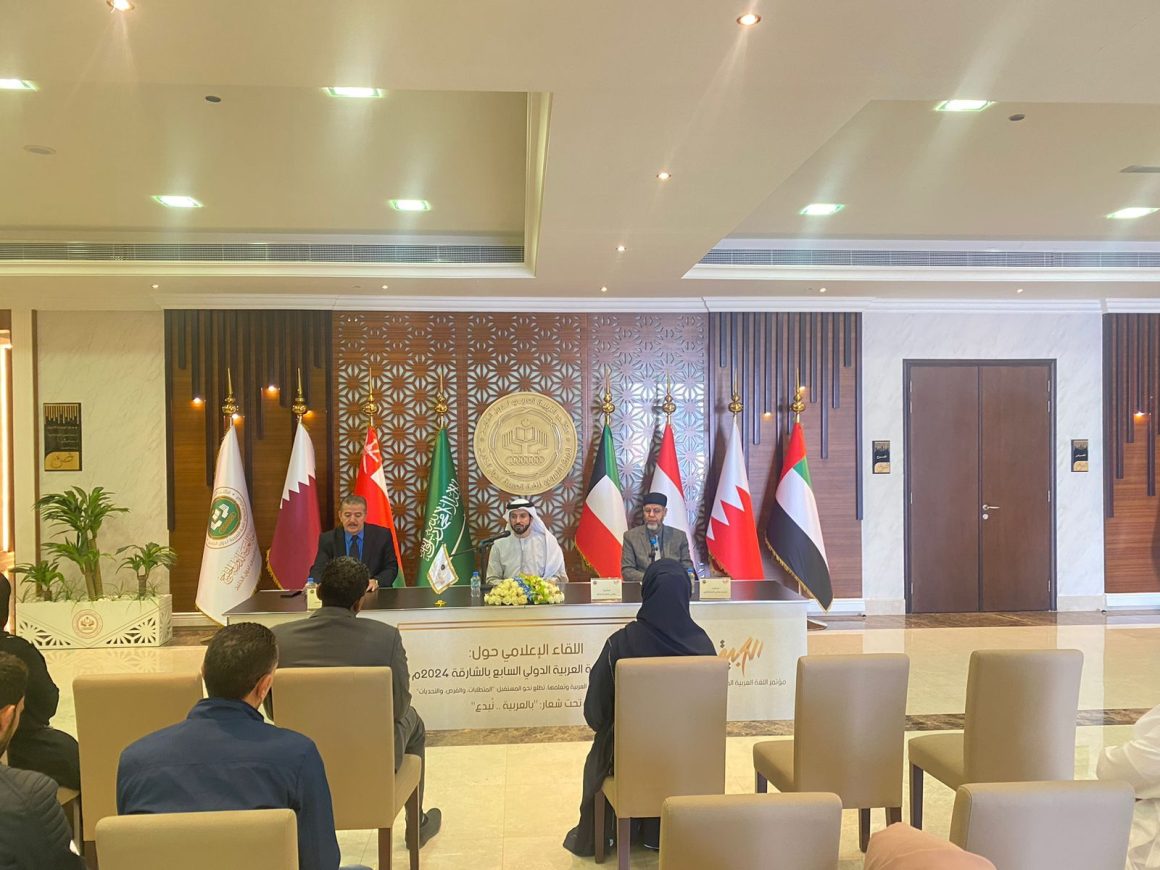The 7th International Arabic Language Conference (IALC) kicks off this Tuesday, 16th January, under the patronage of H.H. Dr. Sheikh Sultan bin Muhammad Al Qasimi, Supreme Council Member and Ruler of Sharjah.
Organised by the Arabic Language Educational Centre for Gulf States (ALECGS), the two-day event will gather 197 speakers and experts from 23 countries to explore the theme: “Teaching and Learning Arabic: Looking Towards the Future: Requirements, Opportunities, and Challenges.”
The conference, themed “Teaching and Learning Arabic: Looking Towards the Future: Requirements, Opportunities, and Challenges,” will present 82 qualitative research papers and contribute to 24 seminars and workshops.
The conference will explore crucial aspects of Arabic language education, with 82 research papers presented and 24 seminars and workshops facilitated.
Dr. Issa Al Hammadi, ALECGS Director; Dr. Mohamed Safi Al Mosteghanemi, Secretary-General of the Arabic Language Academy; and Adel Mohammed Waheeb, Head of the Programmes Unit at the centre, addressed the press conference’s audience, emphasising the importance of collaboration and knowledge exchange in shaping the future of Arabic.
H.H. Sheikh Dr. Sultan bin Mohammed Al Qasimi’s unwavering support for ALECGS has been instrumental in its impactful initiatives, encompassing research, training, and conferences like IALC. This year’s hybrid format ensures accessibility, allowing virtual participation alongside in-person engagement.
Highlighting the conference’s significance in promoting cultural interchange, Dr. Al Hammadi stated that the Ruler of Sharjah’s unwavering support for ALECGS has been instrumental in the Centre’s impactful initiatives, encompassing research, training, and conferences. This year’s hybrid format ensures accessibility, allowing virtual participation alongside in-person engagement.
He stressed that the conference, held in Sharjah for the seventh year in a row, aims to establish robust educational, pedagogical, and professional frameworks for teaching and learning Arabic in diverse contexts.
By addressing contemporary challenges and opportunities, the conference fosters dialogue to promote communication and the sharing of knowledge and experiences among specialised institutions under the auspices of education ministries in the Gulf countries and non-member government entities.
An academic committee was constituted to review 157 research papers, selecting 82 for presentation. They prioritise quality, diverse perspectives, and broad subject coverage. The final step features 24 engaging lectures and workshops designed to spark rich conversations and inspire participants.
Dr. Al Mosteghanemi underscored the conference’s crucial role in advancing quality education. He emphasised the power of collaboration, knowledge exchange, and discourse in shaping effective Arabic language teachers. This unique platform not only hones their linguistic skills but also fosters their personal and professional development.
WAM

